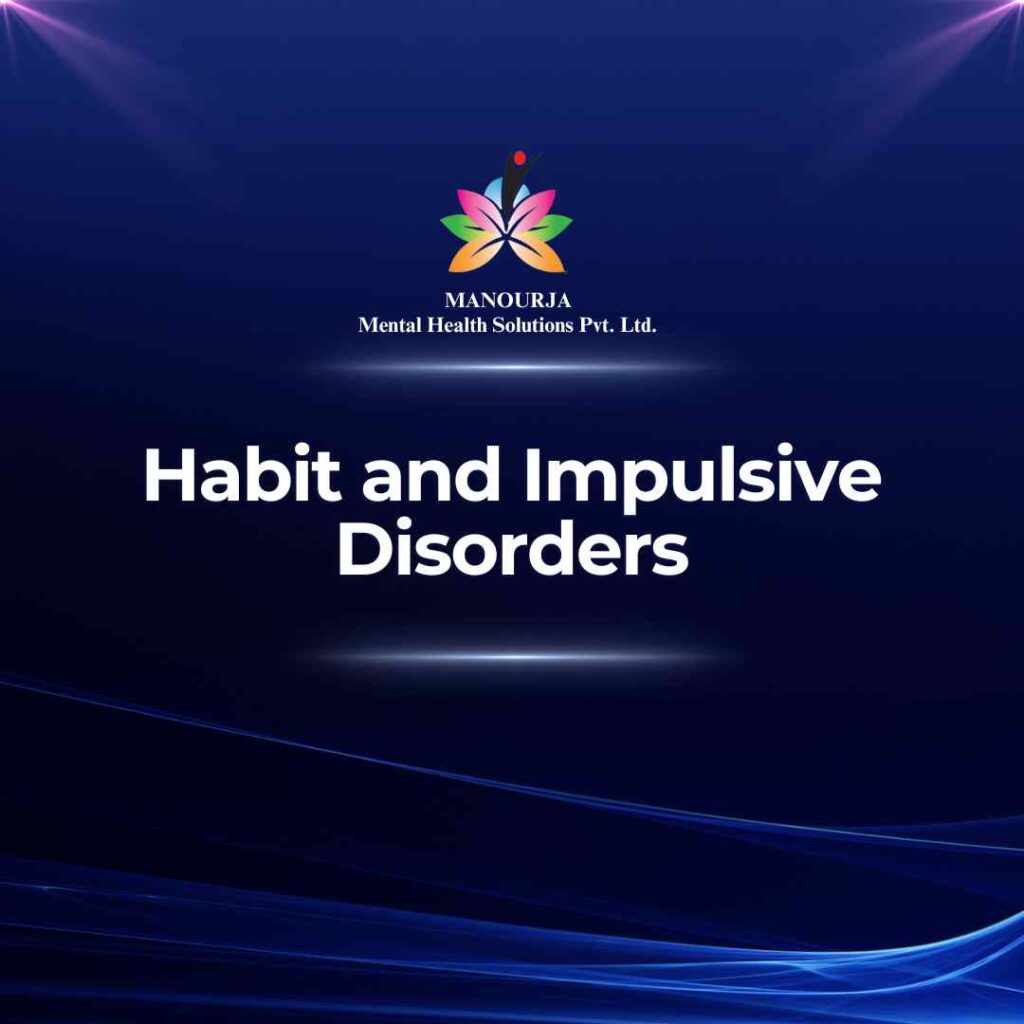Habit and Impulsive Disorders

Habit and Impulsive Disorders involve repetitive behaviors that an individual feels compelled to perform, even if these behaviors are harmful. These disorders can cause significant distress, impair everyday functioning, and are characterized by an irresistible urge to perform a particular act.
Meaning and Symptoms
- Compulsion: Individuals feel an uncontrollable urge to perform certain behaviors, often to relieve anxiety or distress.
- Repetition: The behaviors are repetitive and often performed in a ritualistic manner. This repetition can interfere with normal functioning.
- Lack of Control: There is typically a feeling of a lack of control over the behavior. Despite efforts to stop or reduce the behavior, individuals often find themselves repeating the act.
- Distress or Impairment: Such behaviors cause significant distress or impairment in social, occupational, or other important areas of functioning.
Forms of Habit and Impulsive Disorders
- Obsessive-Compulsive Disorder (OCD): Characterized by unwanted, persistent thoughts (obsessions) and repetitive behaviors (compulsions) that the individual feels the need to perform.
- Trichotillomania (Hair-Pulling Disorder): Involves recurrent, irresistible urges to pull out hair from one’s scalp, eyebrows, or other areas of the body, despite trying to stop.
- Dermatillomania (Skin-Picking Disorder): Characterized by repeated skin picking, leading to skin lesions and significant distress or impairment.
- Pathological Gambling: Persistent and recurrent problematic gambling behavior leading to clinically significant impairment or distress.
- Kleptomania: A recurrent urge to steal items not needed for personal use or for their monetary value.
- Pyromania: A compulsion to deliberately start fires in order to relieve tension or for instant gratification.
Treatment of Habit and Impulsive Disorders
- Cognitive Behavioral Therapy (CBT): This is the most common form of psychotherapy used to treat these disorders. CBT helps individuals understand the thoughts and feelings that influence behaviors and teaches skills to manage the urges.
- Medication: Depending on the disorder, medications such as SSRIs (Selective Serotonin Reuptake Inhibitors) can be used to treat underlying issues of anxiety and depression, which often co-occur with these disorders.
- Habit Reversal Training: This involves learning to recognize situations where one is likely to perform the habit and replacing the negative habit with a more positive or less harmful one.
- Exposure and Response Prevention (ERP): Mainly used for OCD, this involves exposure to the source of fear or anxiety and learning to resist the urge to perform compulsive behaviors.
- Group Therapy and Support Groups: Sharing experiences and strategies with others facing similar challenges can provide support and motivation.
- Mindfulness and Stress Management: Techniques such as meditation, yoga, and stress management can help reduce the impulses that lead to compulsive behaviors.
Successful treatment often requires a combination of these methods, tailored to the individual’s specific needs and the severity of the disorder. Consulting with healthcare professionals who specialize in treating habit and impulsive disorders is crucial for effective management.
At MANOURJA, we believe in the transformative power of counseling. Our experienced therapists offer a safe and supportive space where you can explore your thoughts, emotions, and challenges. Through personalized counselling sessions, we’ll work together to develop coping strategies, build resilience, and achieve lasting positive change. Discover the path to a healthier, happier you with MANOURJA counselling services.
MANOURJA Rehabilitation Services
At MANOURJA, we’re dedicated to helping you in rebuild your life, after difficult times. Our rehabilitation services focus on understanding what you need to move forward, whether you’re recovering from addiction, trauma, or any psychological – social challenges. We create personalized plans, that are all about helping you, regain your strength and find hope again. With a caring team by your side, you’ll have the support to make real progress and take steps toward a brighter, healthier future
